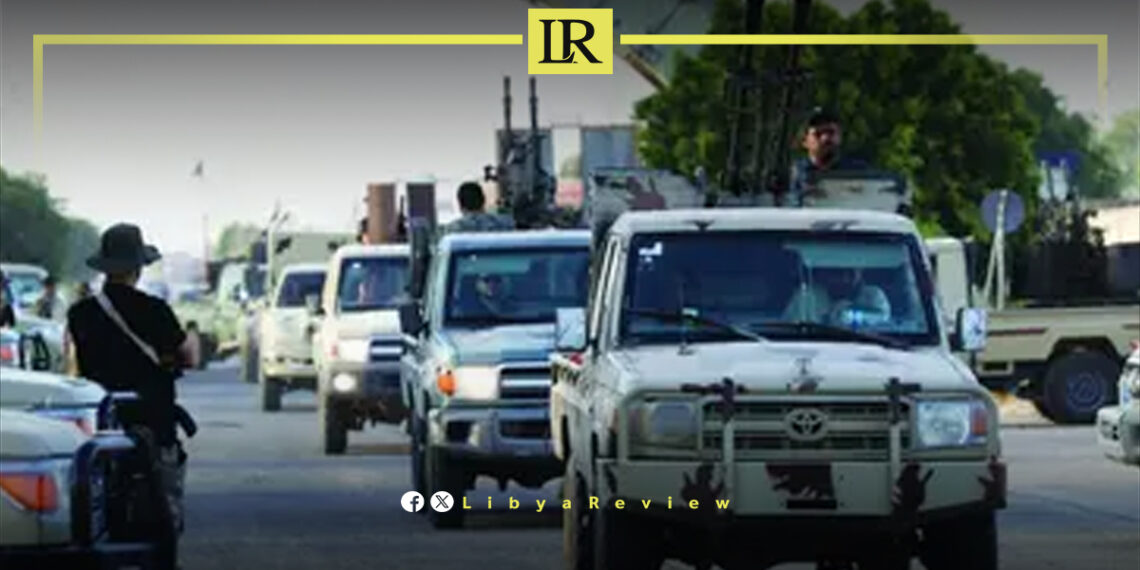The Western Coastal Military Region, under the Presidential Council, has launched a large-scale military operation in Al-Zawiya and neighboring coastal cities.
The operation targets what authorities describe as “suspicious locations” and criminal hideouts.
Residents have been urged to avoid these areas to ensure their safety as forces move to impose security and restore stability.
The military command has declared its determination to eradicate organized crime and chaotic elements in the region.
In a statement released on their official channels, they emphasized the readiness of their forces, equipped with all necessary resources, to dismantle criminal networks and put an end to instability.
Al-Zawiya has been a focal point of recurring violence, with clashes between rival armed groups creating an environment of persistent insecurity.
Recent confrontations include a December 2024 skirmish between forces loyal to Mohamed Kashlaf, known as “Al-Qasab,” and members of the Al-Shurafa tribe, which left one dead and ten others injured.
Fires ignited during the fighting damaged critical oil storage facilities at the city’s refinery, highlighting the broader economic consequences of the unrest.
Similar incidents earlier in the year claimed multiple lives, including a violent encounter in April that resulted in four deaths.
The city’s strategic importance, due to its proximity to Tripoli and its role as a hub for oil production and smuggling routes, has made it a key battleground for rival militias.
In 2021, the Presidential Council established the Western Coastal Military Region and appointed Major General Salah Al-Din Al-Namroush as its commander in an attempt to stabilize the area.
However, deep-rooted rivalries and the presence of powerful militias have continued to challenge these efforts.
While the current military operation reflects a strong commitment to restoring order, analysts warn that sustainable peace will require more than just military action.


